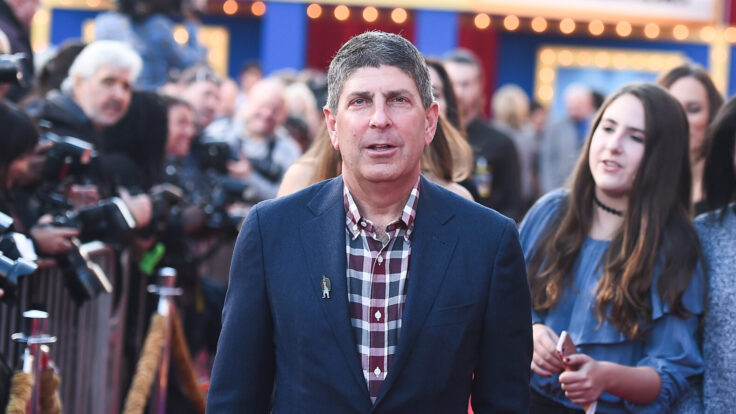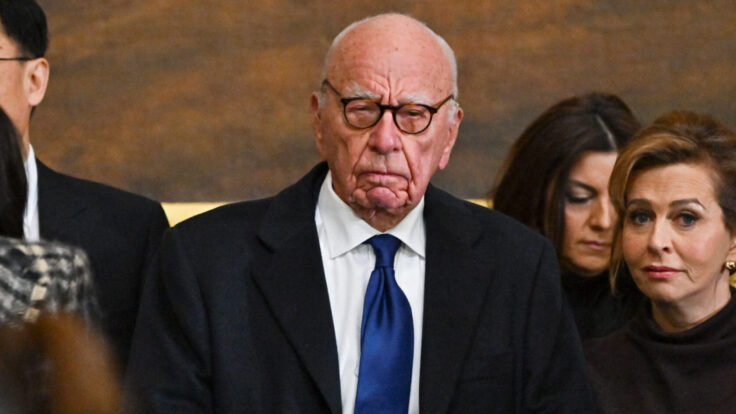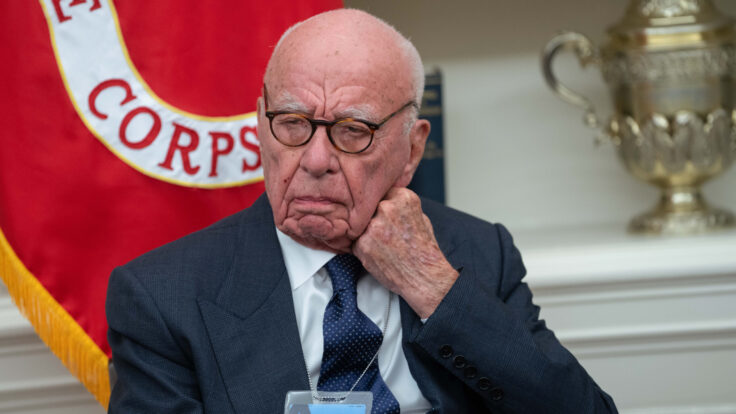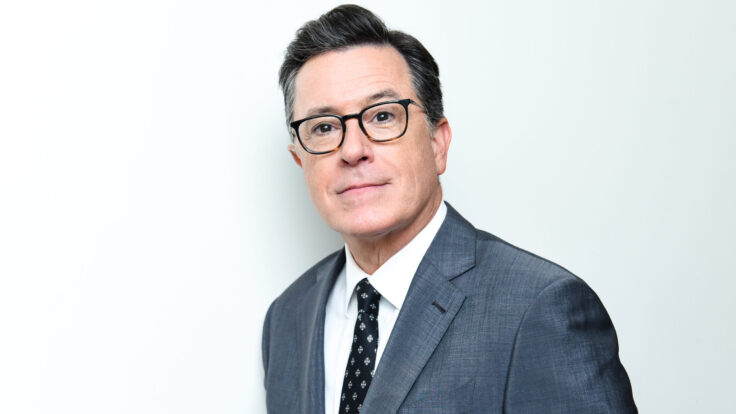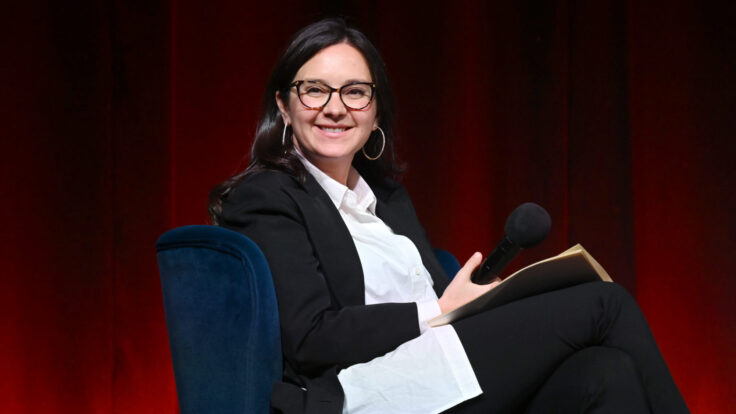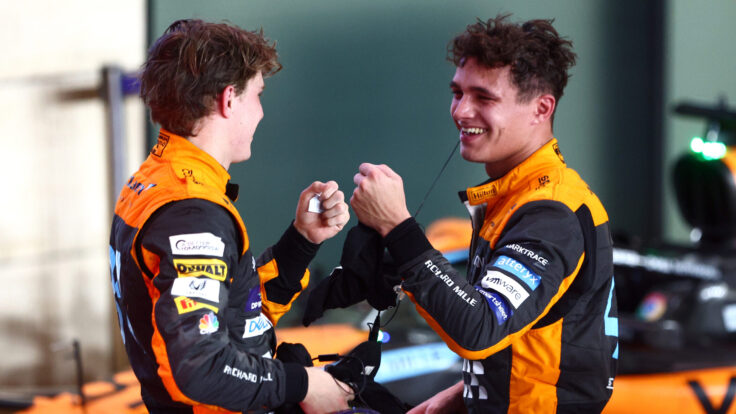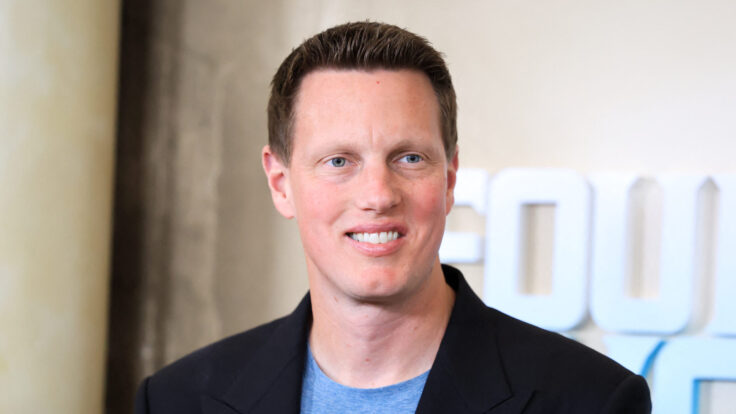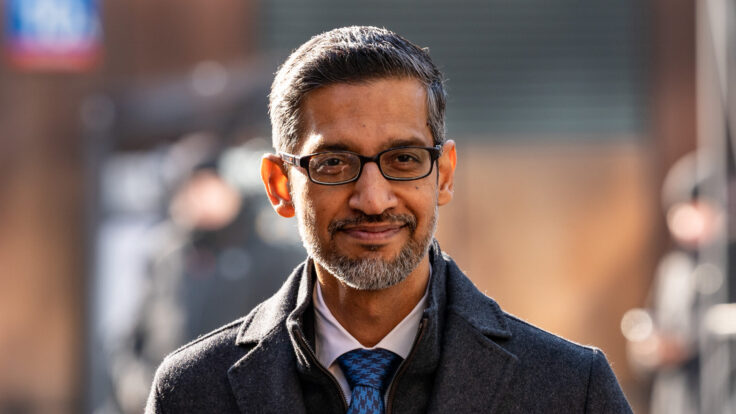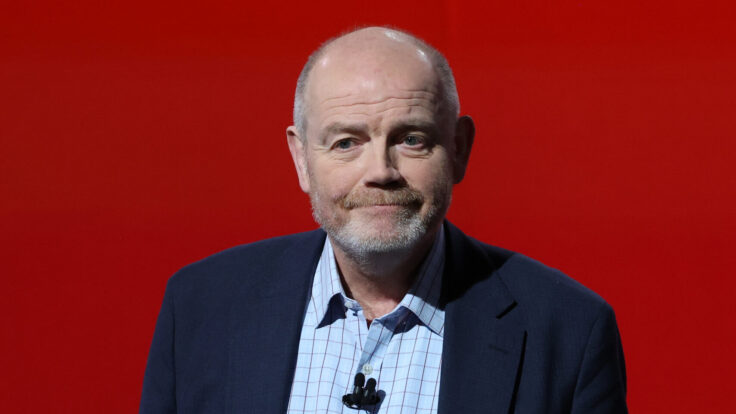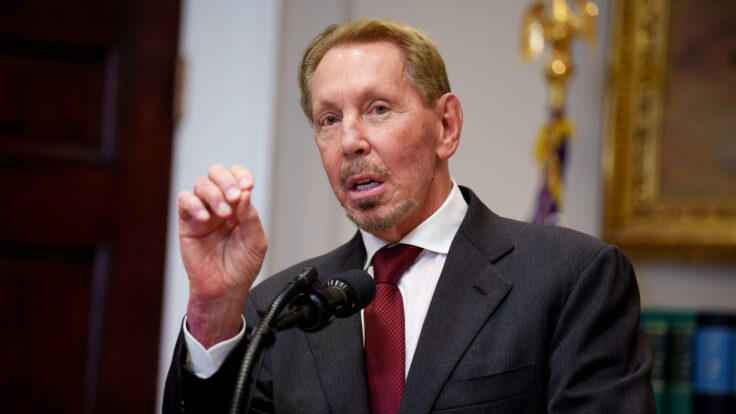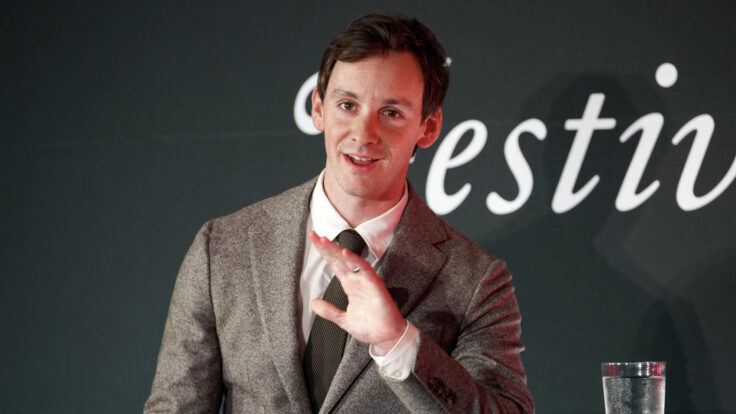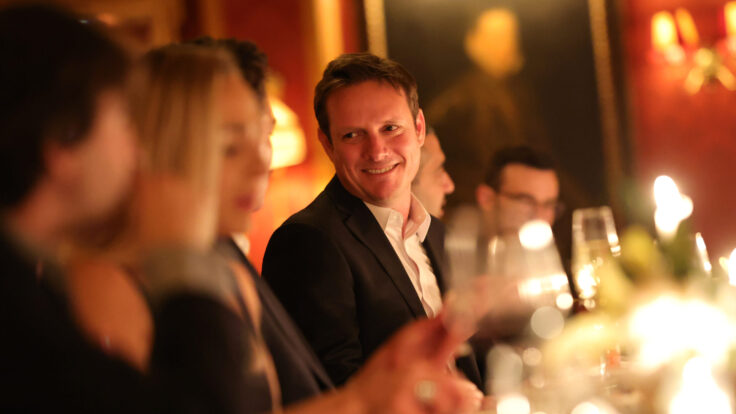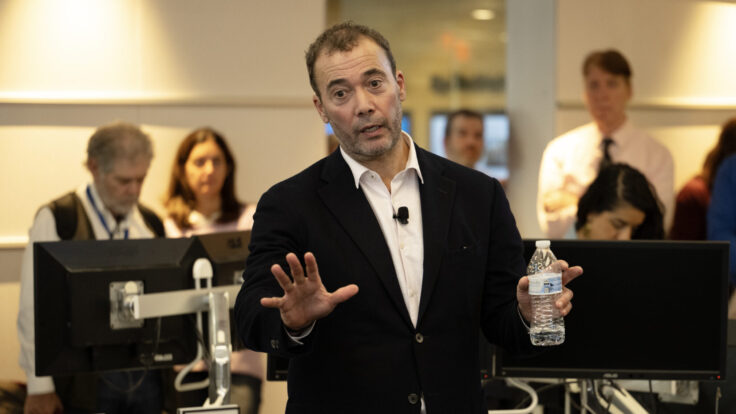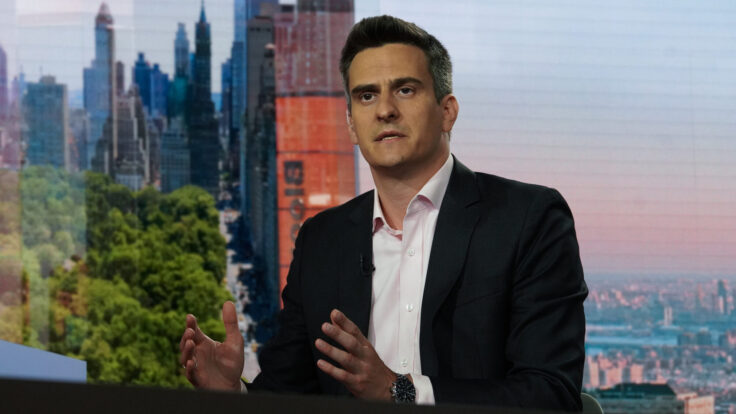|
Greetings from Los Angeles and welcome back to In the Room, my twice-weekly private email on the media business and its biggest egos. This week, Mark Thompson finally hinted at some of the digital innovations that he has planned for CNN, while also announcing another, long-anticipated round of layoffs. So, in tonight’s email: news and notes on the transformation, such as it is, and some thoughts on CNN’s editorial challenge.
Also mentioned in this email: Josh Tyrangiel, Virginia Moseley, Will Lewis, Jeff Zucker, Cliff Levy, Paul Krugman, Marcus Mabry, David Chalian, Phil Rucker, and many more…
But first…
|
- 🍸 The Grill Room: On today’s episode of the podcast, New York Times media reporter Ben Mullin and I dove into the aforementioned CNN transformation effort, the new wave of layoffs, and what it will take for the legacy linear network to thrive as a full-blown digital enterprise. Follow on Apple, Spotify, or wherever you get your podcasts.
- NBC News cuts: CNN was not the only news network to reduce headcount this week. NBC News also laid off more than 40 of its employees, mostly in production—the latest news organization to shed costs as companies resize their ambitions and audiences tune out for the Trump era. Of course, most of these cost savings are pretty minor, with networks like NBC preferring the long slow bleed of incremental layoffs rather than the one-fell-swoop mass firings that redefined the tech industry during the ’22 correction. Alas, nobody at 30 Rock will be breathing a sigh of relief if they dodged this week’s bullet.
- Letter to the editor: Famed andcurmudgeonly Times columnist Paul Krugman has shed some light on his recent surprise departure from the paper, blaming an “extremely intrusive” editing process that apparently toned down the professor’s voice. “I approached Mondays and Thursdays with dread, and often spent the afternoon in a rage,” Krugman told Columbia Journalism Review this week. He said his editor, Patrick Healy, “often—not always—rewrote crucial passages; I would then do a rewrite of his rewrite to restore the original sense, and felt that I was putting more work—certainly more emotional energy—into repairing the damage from his editing than I put into writing the original draft. It’s true that nothing was published without my approval; but the back-and-forth, to my eye, both made my life hell and left the columns flat and colorless.”Krugman wouldn’t be the first or last writer to complain about his editor, of course. But it’s worth noting that the Princeton economist was never quite known for any sort of inimitable or Tolstoyan style, though the Times afforded him a tremendous amount of latitude. After all, the man who was hired after his groundbreaking, Nobel-winning work on economies of scale eventually morphed into another member of the #Resistance choir that became the Times op-ed page. Meanwhile, the Opinion section seems to be receiving a long-overdue tune-up. Charles Blow and Pamela Paul, long standbys, are leaving the paper, too.
|
|
|
|
The Contracting News Network is finally leveling with staff that its future won’t look anything like its past. But Mark Thompson is still focused on where and how people consume news, without offering a vision for how CNN competes in a more crowded media landscape.
|
|
|
|
On Thursday, about 15 months into his tenure—two months longer than his predecessor, Chris Licht, lasted—CNN chairman and C.E.O. Mark Thompson unveiled a number of changes intended to advance the network along its tortured progression from 45-year-old cable news channel to its end goal of being a thriving, multiplatform digital enterprise. Most notably, he previewed the launch of a new, subscription-supported streaming service; hinted at unspecified subscription lifestyle products; and stressed the need to transform the clunky CNN website and app into “a modern and premium video-driven experience.” These efforts, fueled by a $70 million investment from parent company Warner Bros. Discovery, marked the first step in the unit’s plan to reach $1 billion in digital revenue by 2030. One can only assume that, by then, $1 billion would more or less cover over the business’s expected losses in linear revenue.
Finally, as previewed here back in November, Thompson announced that CNN would lay off about 6 percent of its workforce—some 200-plus people, mostly those in off-camera TV production roles and lesser-known editorial services. (One notable exception was the inclusion of Marcus Mabry, senior vice president of digital editorial and programming.) Thompson noted that CNN plans to fill at least 100 new posts on the digital side in the coming months.
On some level, this all feels like Bobby Ewing stepping out of the shower. Three years ago—before Jeff Zucker’s dramatic ouster, the WBD takeover, and the Licht era—CNN also announced new investments in digital products and tech talent, shifted resources from linear to digital, and launched a direct-to-consumer streaming service focused on news and lifestyle content. Had history gone differently, CNN might already have a global D.T.C. service with at least a couple million subscribers. (Yes, the ill-fated and undermined CNN+ is a Rorschach test for media people; some saw it as a harbinger of a larger strategy, while others viewed it as a reincarnation of Quibi emanating from the Zucker solar plexus. Rather than start an ideological war, let’s just agree that we’ve been here before and that ample time has been wasted.)
In any event, Thompson is moving things in the right direction again, albeit from a far less advantageous position. In 2022, CNN was still a formidable player in news media, with cultural market share, a clear editorial mission, and more than $1 billion in annual profits. As this week’s milquetoast Trump inauguration broadcast reminded us, that is decidedly no longer the case. So, too, the fact that CNN’s audience for the event was down more than 80 percent from four years ago.
|
The morning after Thompson’s announcement, CNN executive editor Virginia Moseley led a meeting with the Washington bureau to talk through the changes. Her general message, I’m told, was a distillation of Thompson’s own oft-repeated and very obvious diagnosis: Linear television is dying, and with fewer and fewer people watching TV, CNN needs to adjust to meet people where they are, i.e., their mobile devices—a truism at this point, but one complexified by the fact that virtually everyone in the meeting, including Moseley, earned their stripes in the fading broadcast business.
The solution, however, remains elusive. Moseley suggested that new people will eventually be hired in leadership positions to figure out the details, and that the chain of command will be delineated when those people are hired. Alas, the inadvertent insinuation that the plan is to hire people with a plan did not quite assuage all the nerves in the room. Meanwhile, as bureau chief David Chalian told staff, it’s impossible for them to just “flip the switch” from linear to digital, because linear’s still paying the bills.
In retrospect, Moseley may have hit on the real crux of CNN’s challenge. Amid Thompson’s preoccupation with how people consume the news, little attention seems to have been given to what sort of news will differentiate CNN in today’s crowded media landscape. The current operating thesis is that CNN can be indispensable (Thompson’s word) to consumers by being a dispassionate, down-the-middle, BBC-ified mass market news digest. In fact, while tens of millions of people may sample from that buffet daily, very few engage with it in a meaningful, let alone monetizable, way. It largely provides commodity news that is readily available, for free, from myriad other sites and apps and influencers, many of whom manage to deliver it in ways that command actual affinity from their audiences.
So, who are the creative leaders who are going to figure it all out—the people with the plan? Last September, I reported that Thompson had been in talks to hire Washington Post columnist Josh Tyrangiel, the former wunderkind magazine editor, Bloomberg LP creative, and Vice News E.P., for just that role. This week, the Times reported that its own deputy publisher Cliff Levy had been courted for the position (likely at the same time he was also being courted to serve as Will Lewis’s executive editor at the Post). Neither bit. Tyrangiel, a media philosopher with a pedigree in turnaround projects, perhaps thought the job was too large to report to Moseley. Levy might not have been the right guy for the role, but Mark clearly has faith in him from their Times voyage. In any case, as Moseley told staff this week, CNN is still searching for that “visionary leader.” (Meanwhile, the network has hired the affable Post lifer Phil Rucker to help bolster its political coverage.)
On some level, the role still sounds like an exciting job opportunity, a chance to define the next iteration of the world’s most well-known global news network. On the other hand, as I’ve noted, it increasingly feels like Thompson isn’t engineering a grand digital transformation so much as right-sizing the organization before an inevitable sale or spin. Indeed, one of the most spellbinding leitmotifs of this saga is that Thompson seems to be installing his workmanlike plan of cost cuts and managed long-term revenue growth in plain sight, and yet his employees are awaiting some digital media version of the Schlieffen Plan.
Perhaps the most significant development in CNN’s recent history came last month, when David Zaslav announced a corporate reorg that split WBD into a future-facing streaming and studios unit and a linear networks division, with CNN squarely in the latter. If all of Thompson’s moves really are just about efficiency and maximizing profits while managing decline… well, what visionary leader wants to be a part of that? Yet again, we may already have our answer.
|
|
|
|
A professional-grade rundown on the business of sports from John Ourand, the industry’s preeminent journalist, covering the leagues, players, agencies, media deals, and the egos fueling it all.
|
|
|
Need help? Review our FAQ page or contact us for assistance. For brand partnerships, email ads@puck.news.
You received this email because you signed up to receive emails from Puck, or as part of your Puck account associated with . To stop receiving this newsletter and/or manage all your email preferences, click here.
|
|
Puck is published by Heat Media LLC. 107 Greenwich St, New York, NY 10006
|
|
|
|
